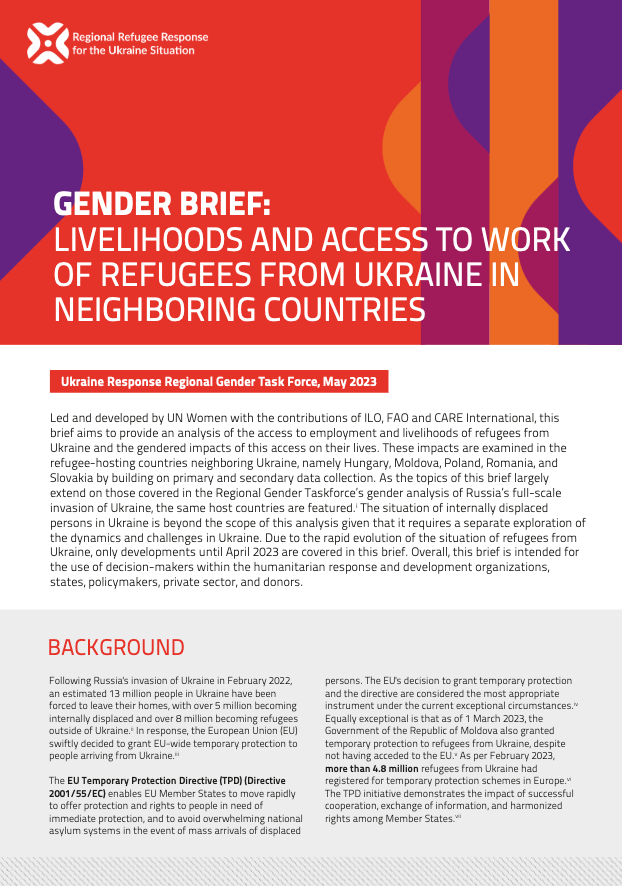
Gender brief: Livelihoods and access to work of refugees from Ukraine in neighboring host countries

Following Russia's full-scale invasion of Ukraine in February 2022, an estimated 8 million people, of whom roughly 90 per cent are women and girls, have become refugees outside of Ukraine. The countries of Hungary, Moldova, Poland, Romania, and Slovakia have seen a particularly high influx of refugees. Co-led and developed by UN Women with the contributions of ILO, and Care International on behalf of the Regional Gender Taskforce, this gender brief, Livelihoods and access to work of refugees from Ukraine in neighboring countries, aims to provide an analysis of the access to employment and livelihoods of refugees from Ukraine and the gendered impacts of this access on their lives. In doing so, this brief:
- Reviews the challenges women face in building sustainable livelihoods in terms of professional qualifications, employment opportunities, language, care work, protection, gender-based violence, the status of Roma communities from Ukraine, and financial assistance.
- Identifies good practices on livelihoods adopted in the response thus far.
- Offers recommendations for how to address livelihood challenges refugees from Ukraine are currently facing in neighboring host countries.
This brief builds primarily on secondary data complemented by primary data analysis covering the situation of refugees from Ukraine in Hungary, Moldova, Poland, Romania and Slovakia. The contents of the brief are directed primarily towards use by decision-makers within the humanitarian response and development organizations, states, policymakers, private sector, and donors.